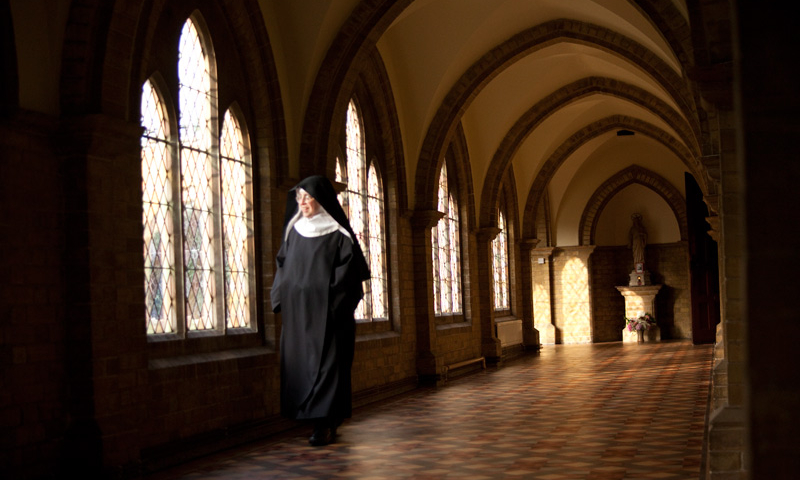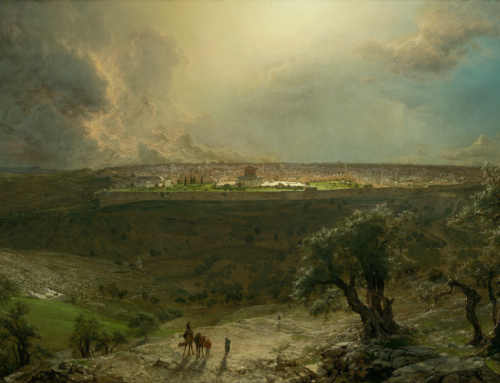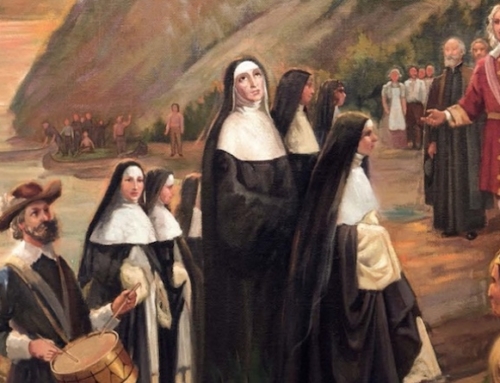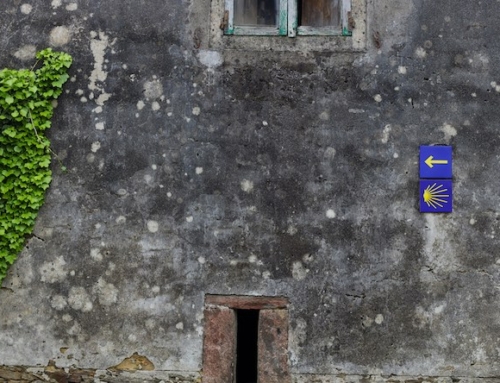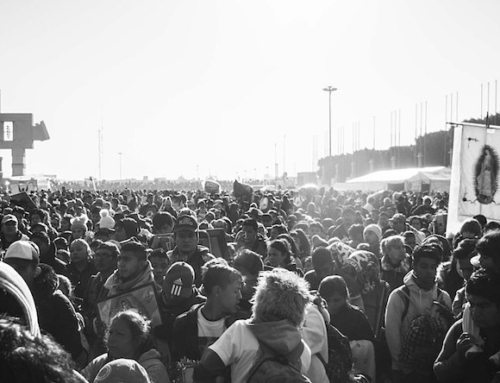2021 Summer Reading Recommendations:
The Joy of God, by Sister Mary David
The two nuns broke into an impromptu parlor performance of “Let’s Call the Whole Thing Off.” One an American the other a Brit, they sang the song to spoof their accents. I remember the laughter in the room and the joy in the nuns’ eyes. Although this happened close to two decades ago, the scene is fresh in my mind. There was something so human and full about the way the nuns laughed.
Their laughter rang in my ears as I read the posthumously published writings of one of those singing nuns—the longtime novice mistress of St. Cecilia’s Abbey. When we hear the title “novice mistress,” many of us probably imagine a dour woman reporting to her Abbess, “I hate to have to say it but I very firmly feel, Maria’s not an asset to the Abbey!” Few would imagine a witty Louisianan of Palestinian background, with an Oxford doctorate and impeccable academic credentials to boot. But the former image comes from a movie; the latter is a true story. Sister Mary David Totah left a university career for the cloister and spent over twenty years on an island in the English channel forming novices for the joys and trials of monastic life.
She was a Benedictine nun no one could forget. When in 2017 she went to God at the premature age of 60, she left a legacy of wisdom—both in the women she formed and in her writings—that her sisters saved and have now published as The Joy of God. The book contains spiritual conferences, short reflections, letters to other sisters, as well as an interview she gave shortly before she died. As the title suggests, the theme of joy runs throughout, since Sr. Mary David was convinced that “There is no doubt that in the history of the Church . . . joy in tribulation has been one of the most striking things about our faith” (3). In a world sadly lacking in joy, this book is not only for Benedictine novices. It’s for all of us novices in the Christian life—and, really, who isn’t a novice in the spiritual life?
Some of my favorite pieces in the collection were the short notes that Sr. Mary David wrote to her novices after difficult conversations. Since she served the young women coming into the monastery from the world, her writings engage typical, modern anxieties with the insights of the monastic tradition. For example, she writes:
I do hope you slept well and are feeling more bright-eyed and bushy-tailed, as we say in my neck of the woods. Just a few points to reflect on, for your strength and encouragement: As I said last night, when you feel this way, it is vital to move to a place of perspective; it’s not a question of squashing the feelings but of holding them at a distance and recognising that you are different from, and more than, your reaction (68).
Here we see an exhortation to “detachment from self”—that frightening $100 concept of the spiritual tradition—presented in a way that we can all understand. It makes sense, and it’s appealing.
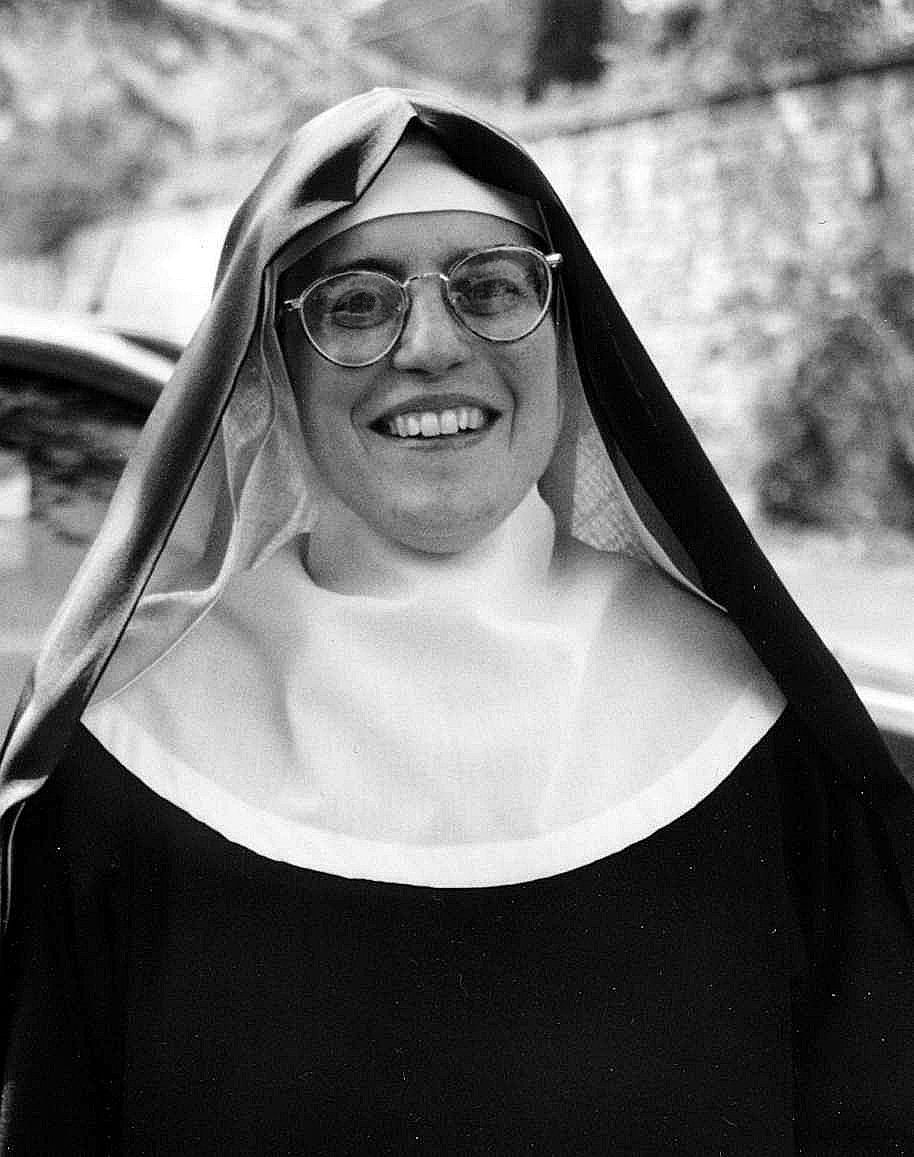
“We are to love other people, especially our family, more than anything else, but not more than God.”
On the flipside of detachment is the love of God. Detachment only makes sense when a deeper attachment arises within the heart, and Sr. Mary David knew this well. She writes,
We are to love other people, especially our family, more than anything else, but not more than God. We cannot love people too much but we can love God too little. God first, not second, because he knows that if we put anyone else in his place it just won’t work. If we put a divine burden on the shoulders of any human being, those shoulders will break and we shall be disappointed. (26)
The last chapter is composed by the infirmarian who cared for Sr. Mary David through her final struggle with cancer. By all reports, Sr. Mary David fought this last battle well: “‘It’s hard,’ she whispered . . . ‘but it’s good . . . because it means I can be strong with his strength and not my own’” (172).
Few people could say such words and mean them. Even fewer could say those words with the conviction that ran through Sr. Mary David’s life and that make her words and her story such a joy to read. It’s a paradox of the Christian life that the most hidden seed often bears the most fruit. She may have been cloistered, but in her writings, Sr. Mary David’s wisdom has jumped the wall, giving us all the chance to have a novice mistress of the highest caliber.
✠
Photos by the Sisters of St. Cecilia’s Abbey, used with permission.

